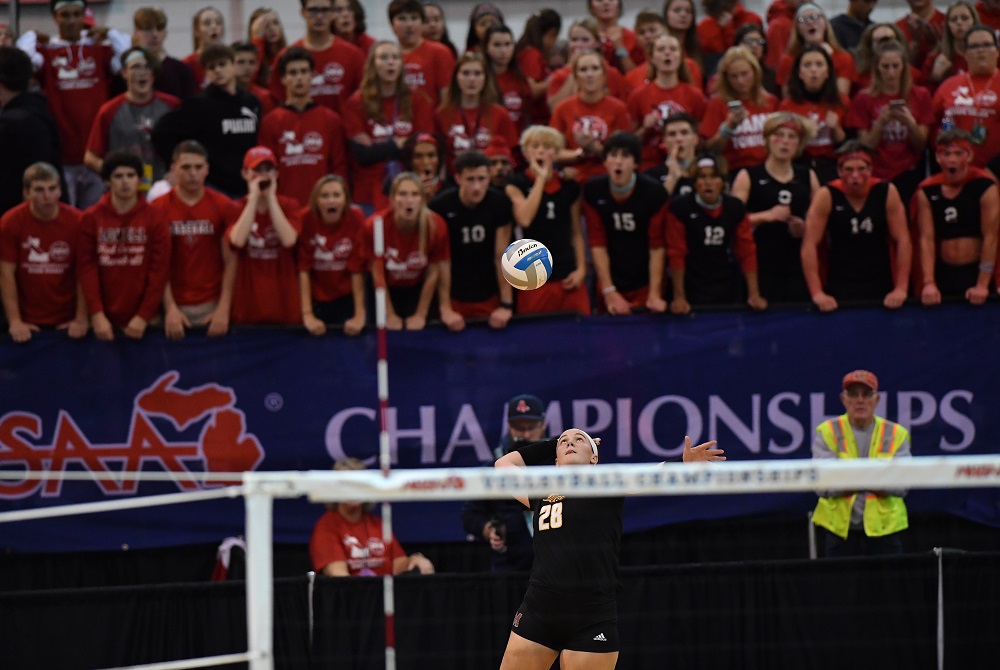
Be the Referee: What Officials Don't Do
October 11, 2018
This week, MHSAA officials coordinator Sam Davis discusses some of the things that do not fall under officials' many game-day responsibilities.
Be The Referee is a series of short messages designed to help educate people on the rules of different sports, to help them better understand the art of officiating, and to recruit officials.
Below is this week's segment – What Officials Don't Do - Listen
Game officials at all levels have a lot of responsibilities. But there are some critical things that take place at local high school games where officials don’t have the authority that some folks think they do.
Let’s start with injuries – specifically concussions. Concussion management starts and ends with the local school. If an official suspects a concussion – or any injury – all he or she can do is notify the coach of the team. The school makes the decision about whether or not a player stays in the game.
We often get calls about whether or not an official is responsible for enforcing MHSAA Handbook rules. Again, it’s up to the school, which agrees to follow and enforce the rules when joining the Association. Even if the official suspects an ineligible player is in the game, it’s not his or her role to enforce that rule. It’s all on the school.
Past editions
October 4: Always 1st-and-Goal - Listen
September 27: Unique Kickoff Option - Listen
September 20: Uncatchable Pass - Listen
September 13: Soccer Rules Change - Listen
September 6: You Make the Call: Face Guarding - Listen
August 30: 40-Second Play Clock - Listen
August 23: Football Rules Changes - Listen

Be the Referee: Volleyball Replays
By
Sam Davis
MHSAA Director of Officials
September 13, 2022
Be The Referee is a series of short messages designed to help educate people on the rules of different sports, to help them better understand the art of officiating, and to recruit officials.
Below is this week's segment – Volleyball Replays - Listen
In volleyball, you’ll sometimes see the first referee gives a double thumbs-up signal. That’s not because the referee was impressed with a huge spike. So what does it mean?
A double thumbs-up signal indicates there will be a replay of the rally or point. What causes a do-over for a rally or point?
This most often occurs when something or someone enters the proximity of the playing area, but can also happen when the ball gets lodged in the net or overhead obstruction. When it hits certain objects on the wall short distances from the court, and when a player gets a little anxious and serves before the first ref’s whistle.
And, unlike any other sport, the point will be replayed if the officials just can’t come to an agreement on the call. The point gets wiped off the board, and the whole rally starts anew, like it never happened.
Previous Editions:
Sept. 6: Switching Sides - Listen
Aug. 30: Play Clock - Listen
Aug. 23: Intentional Grounding Change - Listen

